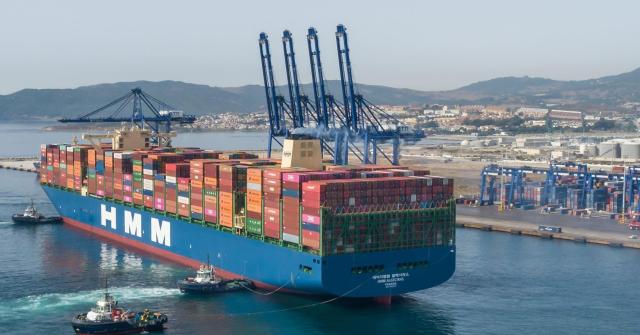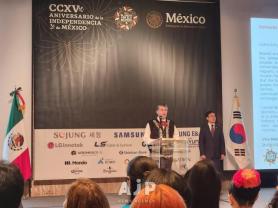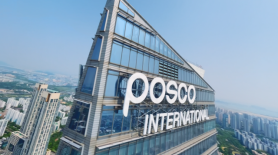
POSCO has been reviewing the option of going after state-owned stake in HMM in hopes to cut logistics costs and strengthen resilience against global supply chain disruptions.
HMM, formerly Hyundai Merchant Marine, absorbed assets and the Asia–U.S. East Coast route of Hanjin Shipping after the latter collapsed. It is 36.02 percent owned by the Korea Development Bank (KDB) and 35.6 percent by the Korea Ocean Business Corporation (KOBC). Their combined stake will shrink slightly above 30 percent once a 2.2 trillion won stock buyback wraps up this month. The government plans to relaunch a competitive auction afterward, after a 2023 attempt to sell KDB’s 7 trillion won stake to Harim Group collapsed.
POSCO Holdings said it is assessing whether the deal can deliver sustainable growth and strategic synergies. Other potential bidders include Harim Group, along with former owners HD Hyundai and Hanjin Group.
Valued at about 23–24 trillion won, HMM has staged a recovery thanks to improving trade conditions. "Few can now afford HMM in the privatization process," said one company official, welcoming POSCO’s entry into the race.
POSCO already has a lot on its plate. Its steel business is under strain from Chinese dumping, sluggish domestic demand, and higher U.S. tariffs, while its battery materials division has been hit by an electric vehicle slowdown. The group argues that acquiring HMM could save it around 3 trillion won annually in logistics costs for importing coal, iron ore, and battery ingredients, while providing a hedge against supply chain risks.
HMM itself reported an “earnings shock” in the second quarter, with operating profit plunging 64 percent year-on-year to 233.2 billion won.
Its rivals are guardedly watching POSCO's bid. The Korea Shipowners' Association warned on Sept. 11 that HMM could be reduced to "a subsidiary for POSCO’s in-house cargo transport" instead of competing as a global carrier.
"HMM, which the government and industry have painstakingly revived through the five-year shipping reconstruction plan, could again be at risk if the steel industry falters," the association said.
Maritime experts echoed caution. "HMM's main vessels are container ships, fleets that must operate even with little cargo. Shipping follows cyclical swings, and it is doubtful whether shareholders of a private industrial group like POSCO will accept the sector's volatility," said Jang Woon-jae, professor of maritime transportation science at Mokpo National University.
At the same time, he noted that HMM’s growing pivot toward bulk shipping, which specializes in iron ore and coal, does align strategically with POSCO's raw material needs.
Should the deal go through, analysts say the onus will be on POSCO to craft a credible blueprint that reassures the market and addresses concerns over industrial dominance.
Copyright ⓒ Aju Press All rights reserved.




